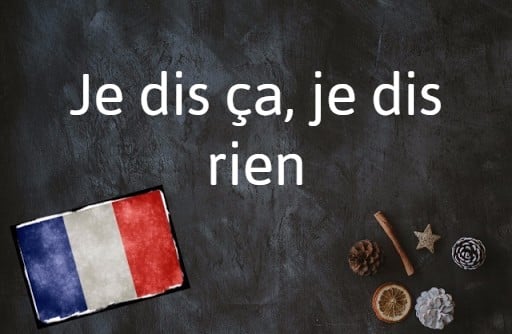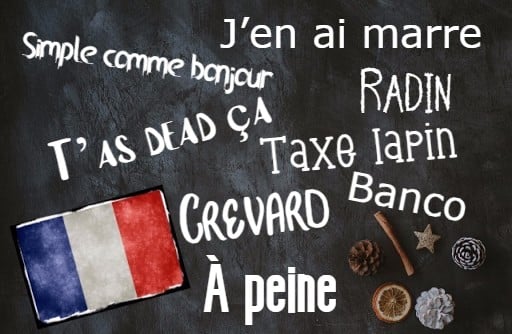Why do I need to know Je dis ça, je dis rien?
Because it’s perfect for giving your opinion, while making it clear you don’t want to impose your point of view.
What does it mean?
It’s literally, “I say that, I say nothing”, which sounds contradictory, but that’s because people who use this expression want to say something while pretending the words never left their mouths.
You would say Je dis ça, je dis rien after uttering comments you wanted people to hear but didn’t really want to take responsibility for.
It’s similar to “I’m just saying”, or “That’s just my two cents”. It’s for when you want to convey information or an opinion, while letting the other person know they’re free to take it or leave it (although they’d be well advised to take it…)
For example, if people are taking a long time to get ready, you could say Le restaurant ferme à 22h, je dis ça, je dis rien – The restaurant closes at 10pm, I’m just saying. You don’t want to appear to be ordering them to hurry up, but, well, you still want them to hurry up.
Writing in Le Figaro, journalist Quentin Périnel listed it as one of his “expressions to banish at the office”, accusing it of being “full of cowardice”, especially when used in conjunction with negative feedback. Indeed it can also be a way of softening some rather scathing comments.
Satirical news site Le Gorafi has also poked fun at the phrase, concluding that “in the majority of cases, people are in fact saying something”.
Use it like this
Ce n’est pas la première fois que Marc arrive en retard, mais bon, je dis ça, je dis rien – It’s not the first time Marc has been late, that’s all I’m saying.
Si tu achètes cette maison il faudrait complètement refaire la cuisine. Je dis ça, je dis rien – If you buy this house you’ll need to completely redo the kitchen. That’s all I’ll say.
Moi je préfère la robe rouge, je dis ça, je dis rien – Personally I prefer the red dress, for what it’s worth.



 Please whitelist us to continue reading.
Please whitelist us to continue reading.
Member comments